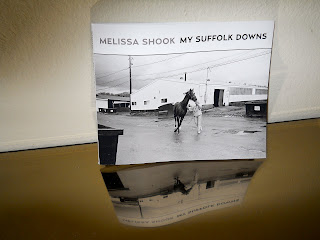
Wednesday, February 29, 2012
"My Suffolk Downs" by Melissa Shook

Wednesday, February 22, 2012
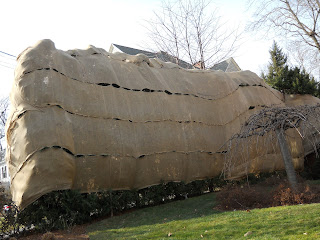
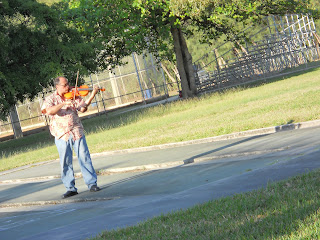
Monday, February 20, 2012
Appearances

Friday, October 28, 2011
Poets Read at Occupy Boston


Buying Flowers
Late spring in this emperor’s city,
horses and carts clattering past:
it’s peony season on the avenues
and the people stream out to buy.
They won’t be this cheap for long.
At these prices, anyone can buy.
Showing five delicate whites amid
hundreds of huge luminous reds,
they rig canopies to shelter them
and bamboo screens to shield them,
sprinkle them, stand them in mud,
keeping their color rich and fresh.
Families come back day after day:
people just can’t shake their spell.
Happening by the flower markets,
an old man from a farm somewhere
gazes down and sighs to himself,
a sight no one here could fathom:
a single clutch of bottomless color
sells for taxes on ten village farms.
Po Chu-i (772-846 C.E.)
Translated from the Chinese by David Hinton
J. took the photo. Po Chu-i's poem set in spring, in the imperial city, fits the fall day in Boston. That red umbrella is a rain-spotted peony, and the folder in my hand a big petal. Let's stop there before metaphors taken too far become absurd.
Friday, October 7, 2011
Out
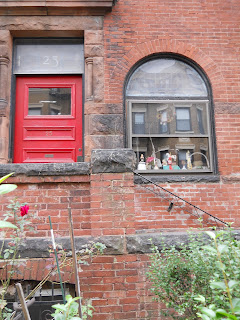


Monday, September 5, 2011
Loitering with Intent


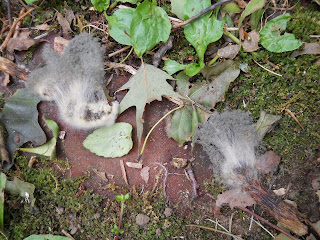
Wednesday, July 27, 2011
Microgreens





